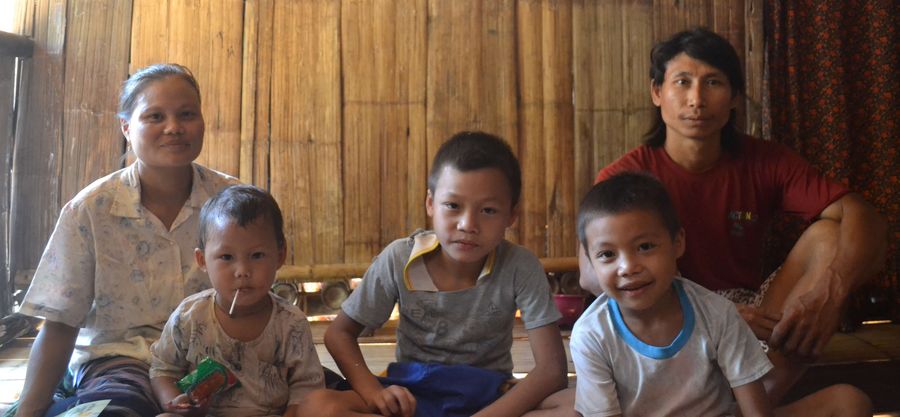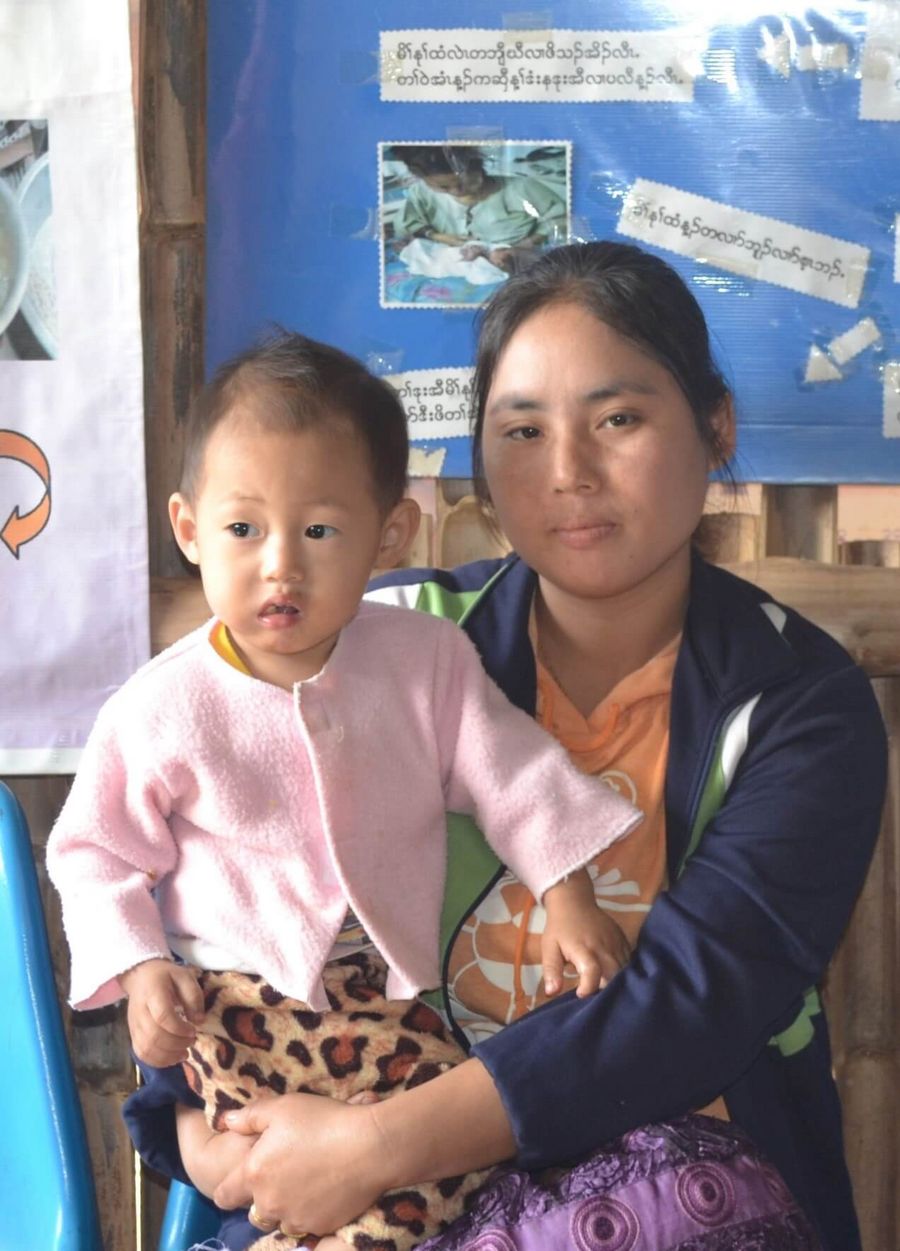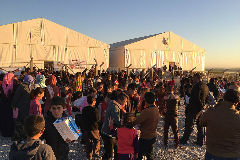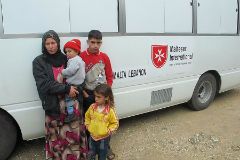Ensuring Health and Self-reliance for vulnerable communities
Decades of violent conflict between armed opposition groups and the Myanmar government have led to arguably the world’s longest running civil war. For more than 20 years, residents from Myanmar, most of whom are members of the Karen ethnic group, have been fleeing to Thailand to seek refuge from the violence in their home country. Yet, as with other forgotten crises, the plight of these refugees has received very scant media coverage, and their situation continues to slide into obscurity.
The Mae Ra Ma Luang camp is one of nine camps along the Thai-Myanmar border and home to around 12,000 refugees from Myanmar. Cher Gay Htoo, 27, fled to Thailand, and arrived in the camp 10 years ago. The married mother of three recounts the horrific experience that forced her to flee her home. “One day, soldiers came to the village, and began shooting randomly. There were also land mines around the village.” The drawn-out armed conflict between ethnic armies and the Myanmar military has driven hundreds of thousands to neighboring Thailand. Many of them have lived here for so long that they can hardly remember their homeland.
Trapped in exile
Like some 110,000 other refugees from Myanmar scattered across these nine camps, Cher Gay Htoo has to live within the confines of the Mae Ra Ma Luang camp with her husband and three children. They are not allowed to go out and find work. Because of this, she, like the others, are entirely dependent on external aid for food, shelter and other necessities for survival. “We don't have a monthly income. Sometimes my husband earns some money cutting the grass in the garden”, Cher Gay tells us. “We are also worried for our children. Will they be able to study and work as normal people? It seems like we are separated from this world.” Her story offers a glimpse into the lives of thousands of people living through one of the world’s most protracted refugee crises. These people not only have to deal with the horrors of their past, but also with the very grim outlook of their future.

Malteser International has been active in the refugee camps since 1993, and is currently implementing a Primary Health Care project funded by the European Union. Thanks to this project, Cher Gay, who is expecting her fourth child, can rely on the free medical care and WASH services that Malteser International provides. “I am so happy we have the hospital in the camp” she says. “When I was pregnant, they took very good care of me until I delivered my baby. When we are sick we go to the hospital for a check-up and they give us medicine for free. The hospital makes me feel safe.

Preparing for return
In the various camps, however, refugees have very limited access to income opportunities. Cher Taa Yuer Wah is also a beneficiary of Malteser International’s work in Mae La Oon camp. Before she came to the camp, the 22-year old had her sights on further education, but conditions in the camp threatened to kill this dream. “The biggest problem for the refugees in the camp is the lack of freedom to work, travel, and live in your own space”, she reveals. With funding from the European Union, Malteser International aims to strengthen self-reliance capacities of the refugee community. This is done by training midwives, nurses, and medical assistants in the camps, and then integrating them into project activities, thereby equipping them for a successful return to their homeland.
Though recent political reform processes in Myanmar have given rise to hopes that the country will transition to democratic governance, serious challenges still remain. For now, Taa Yuer Wah can rest assured that the skills she has acquired have set her up for a profitable life after she leaves the camp. “In the future, I will have my own place and live in freedom with my son”, she says with full conviction.
Read more about our work in Thailand
Satit Chonatee/Michael Etoh
July 2017
More about Malteser International's work with refugees:










